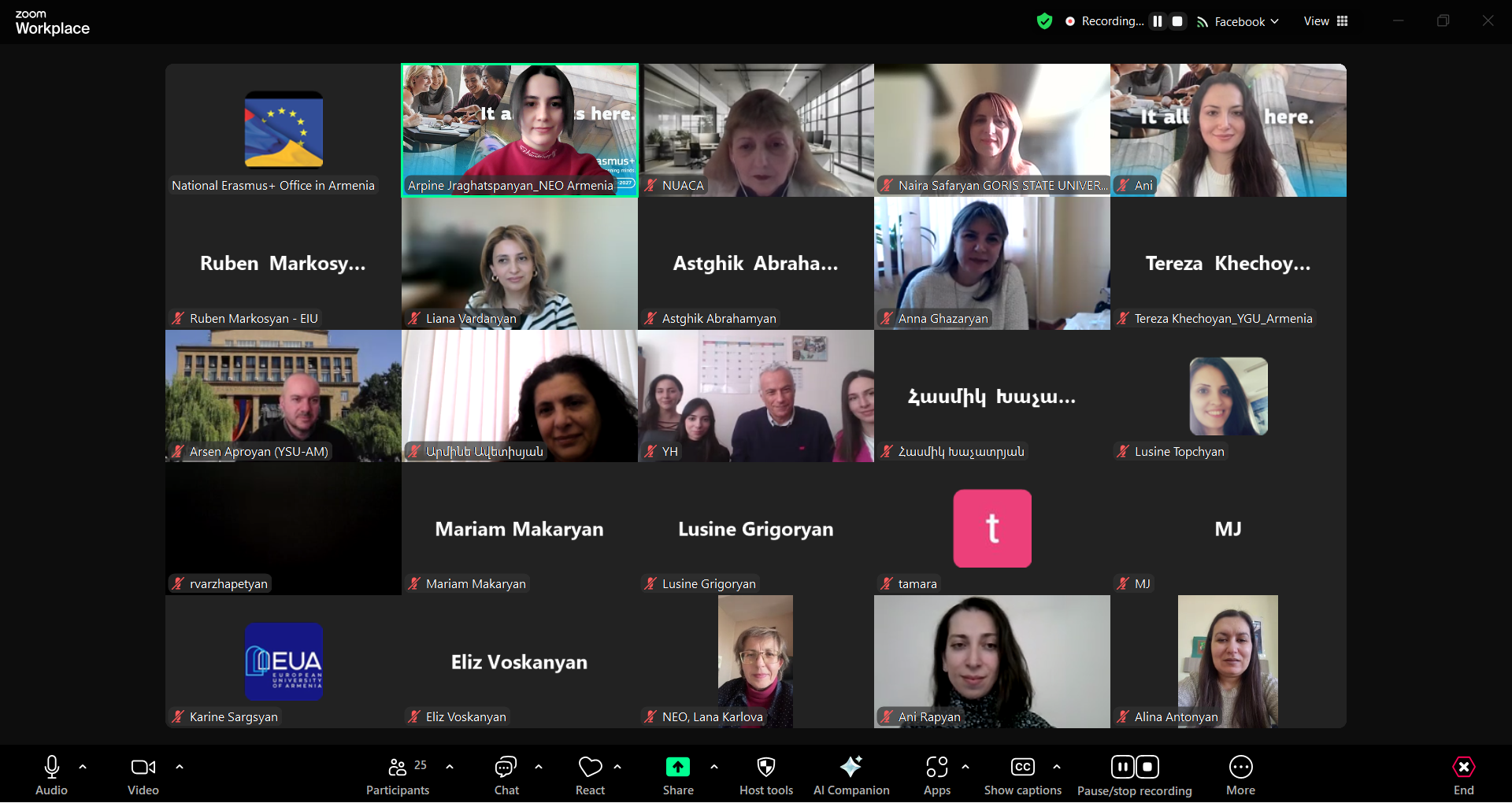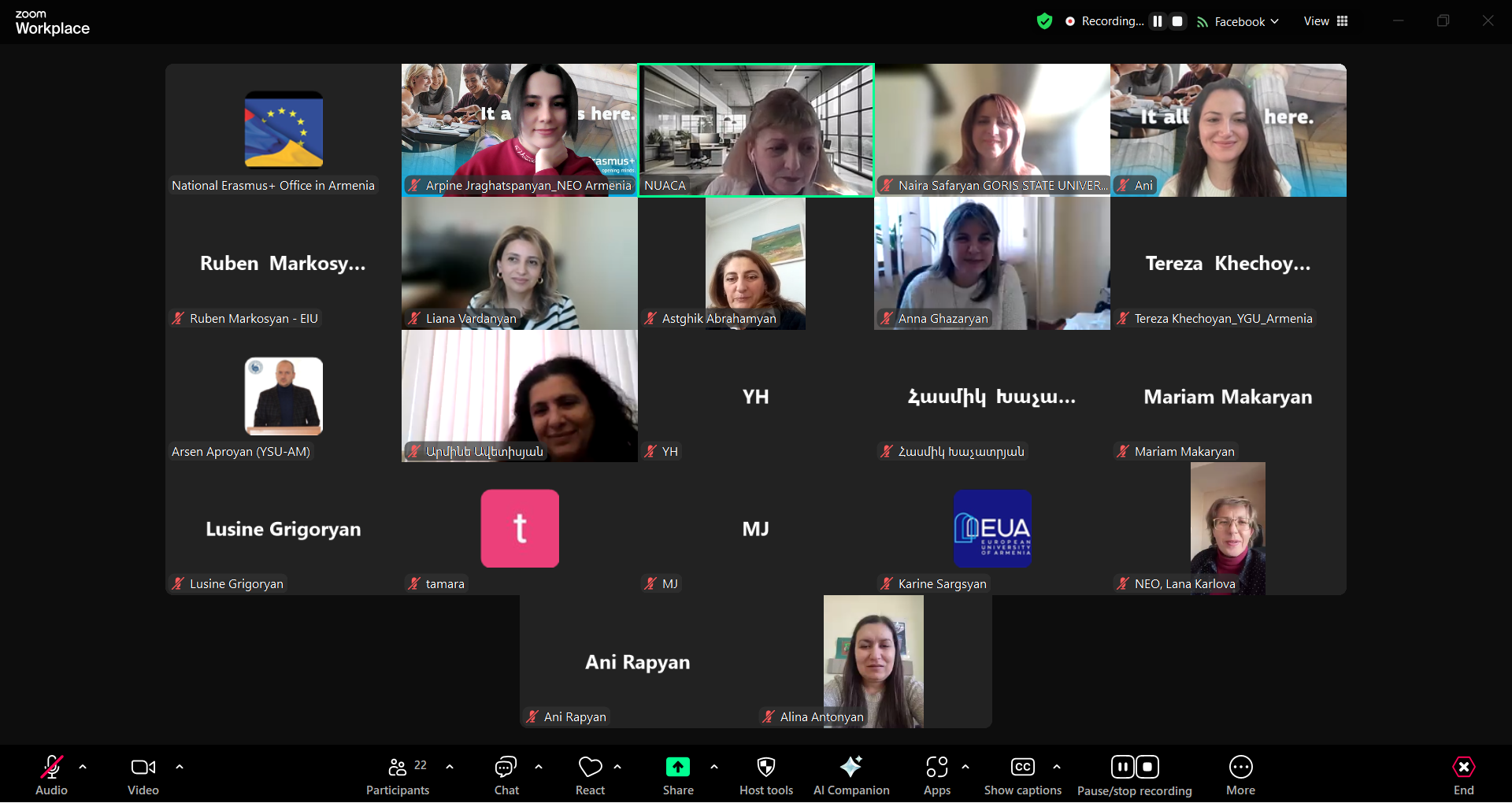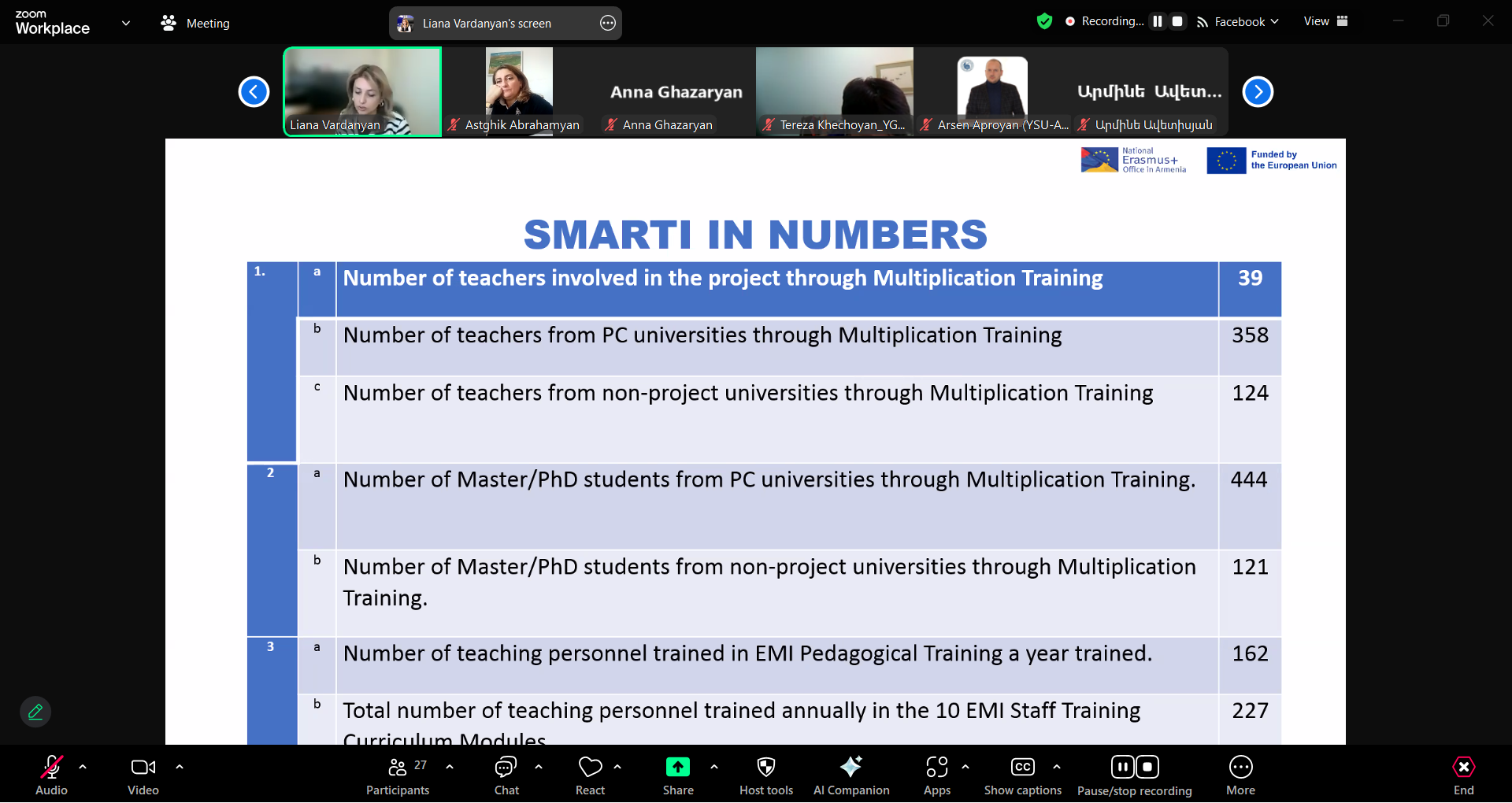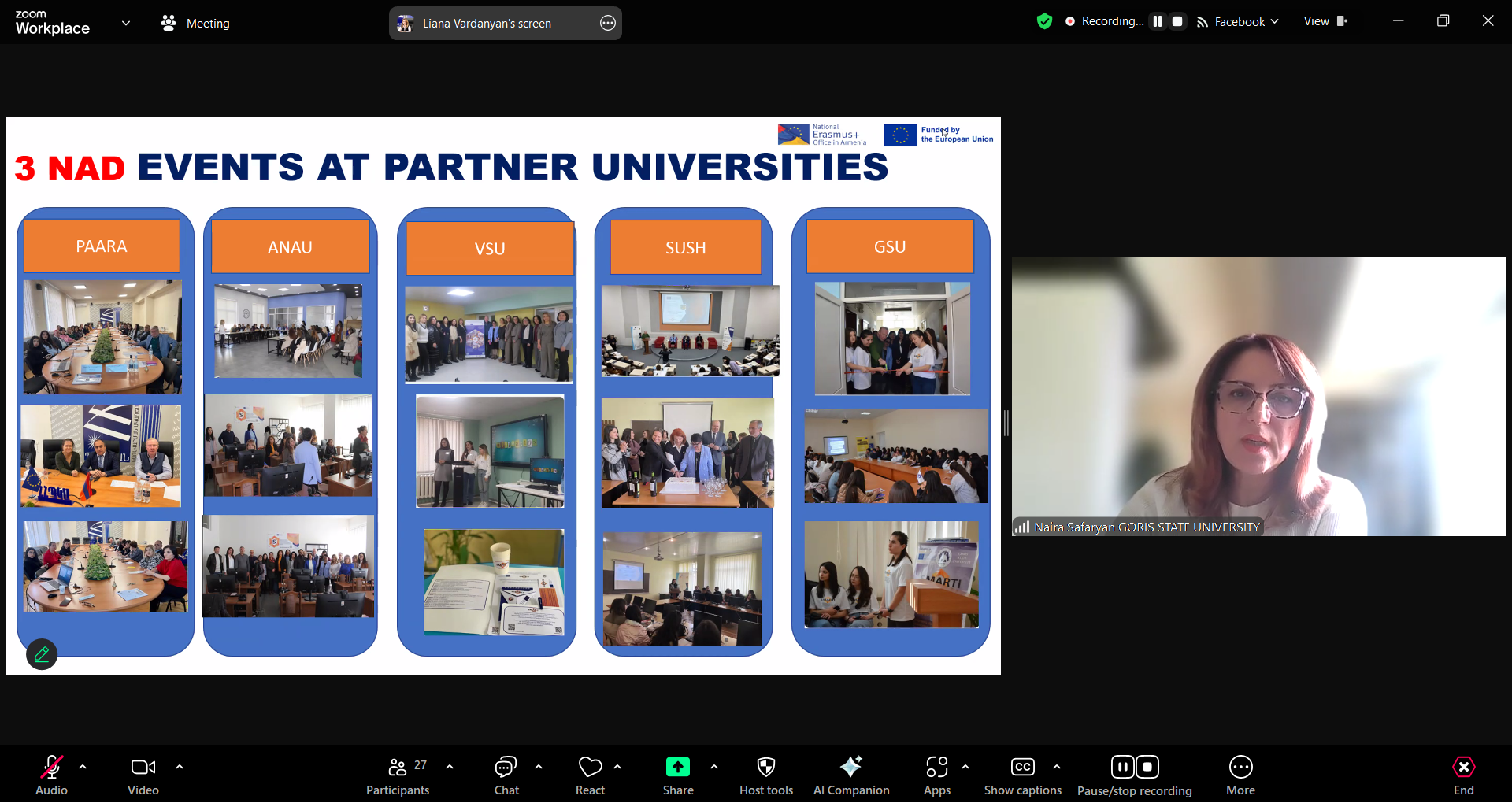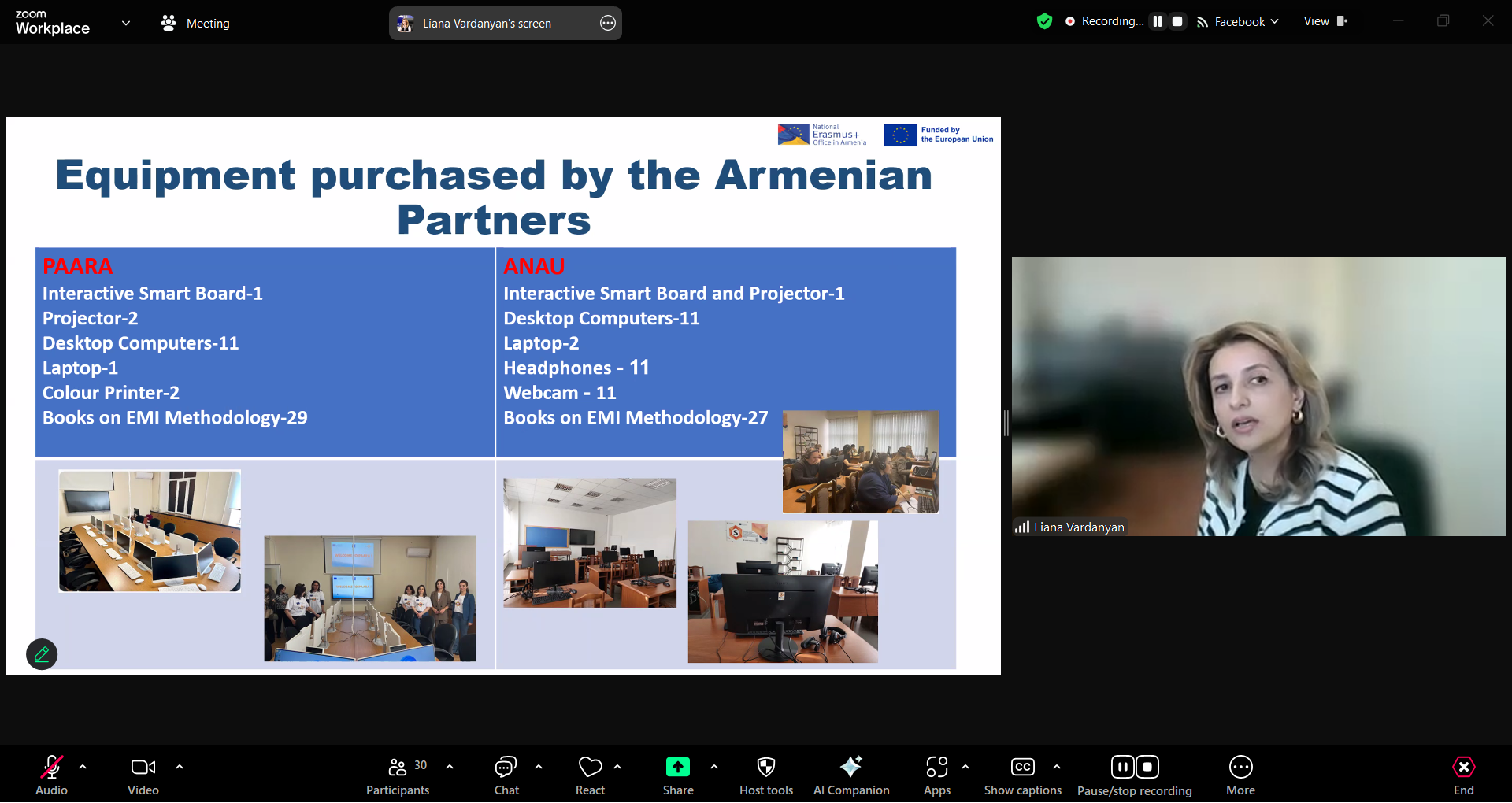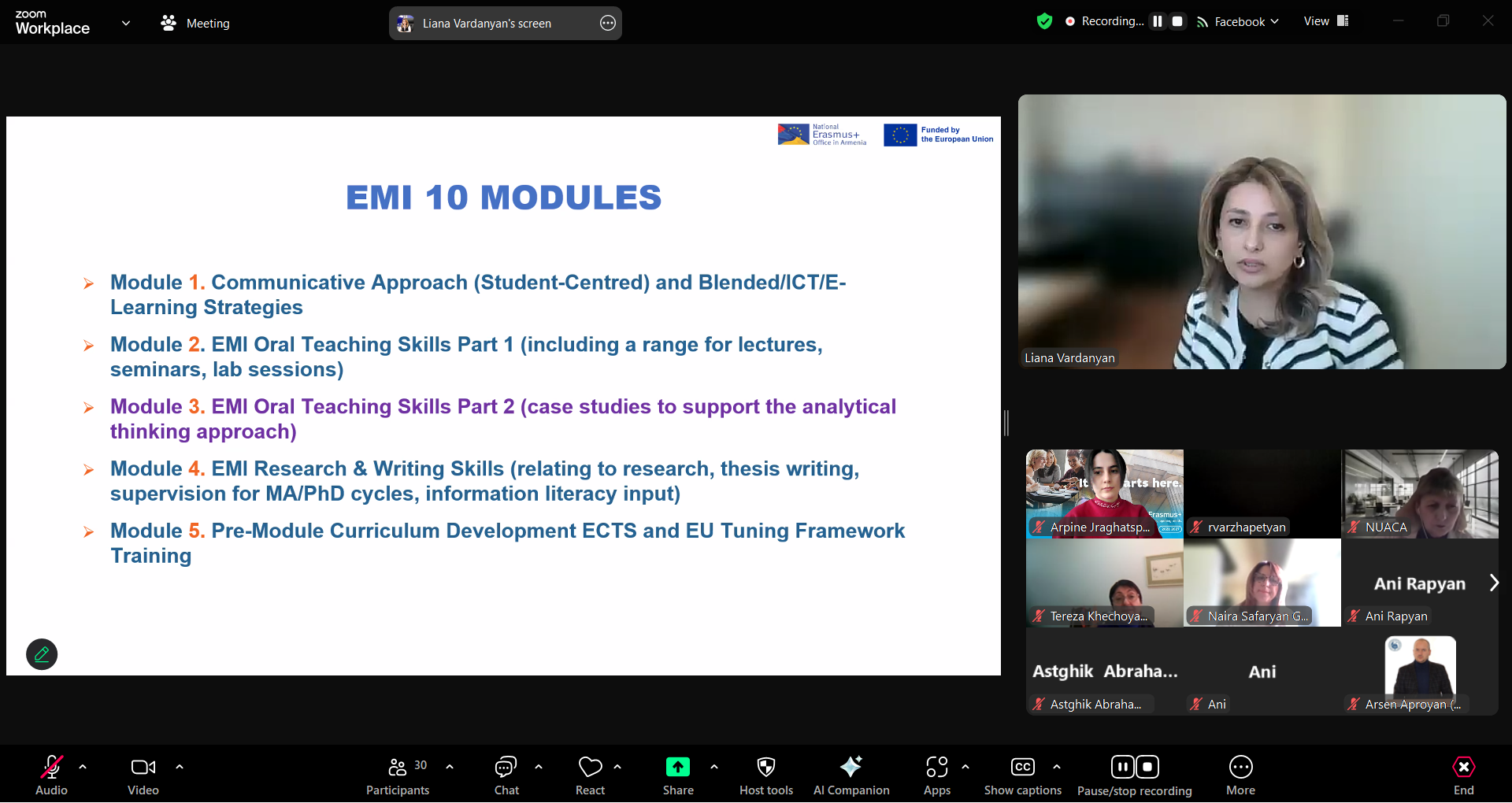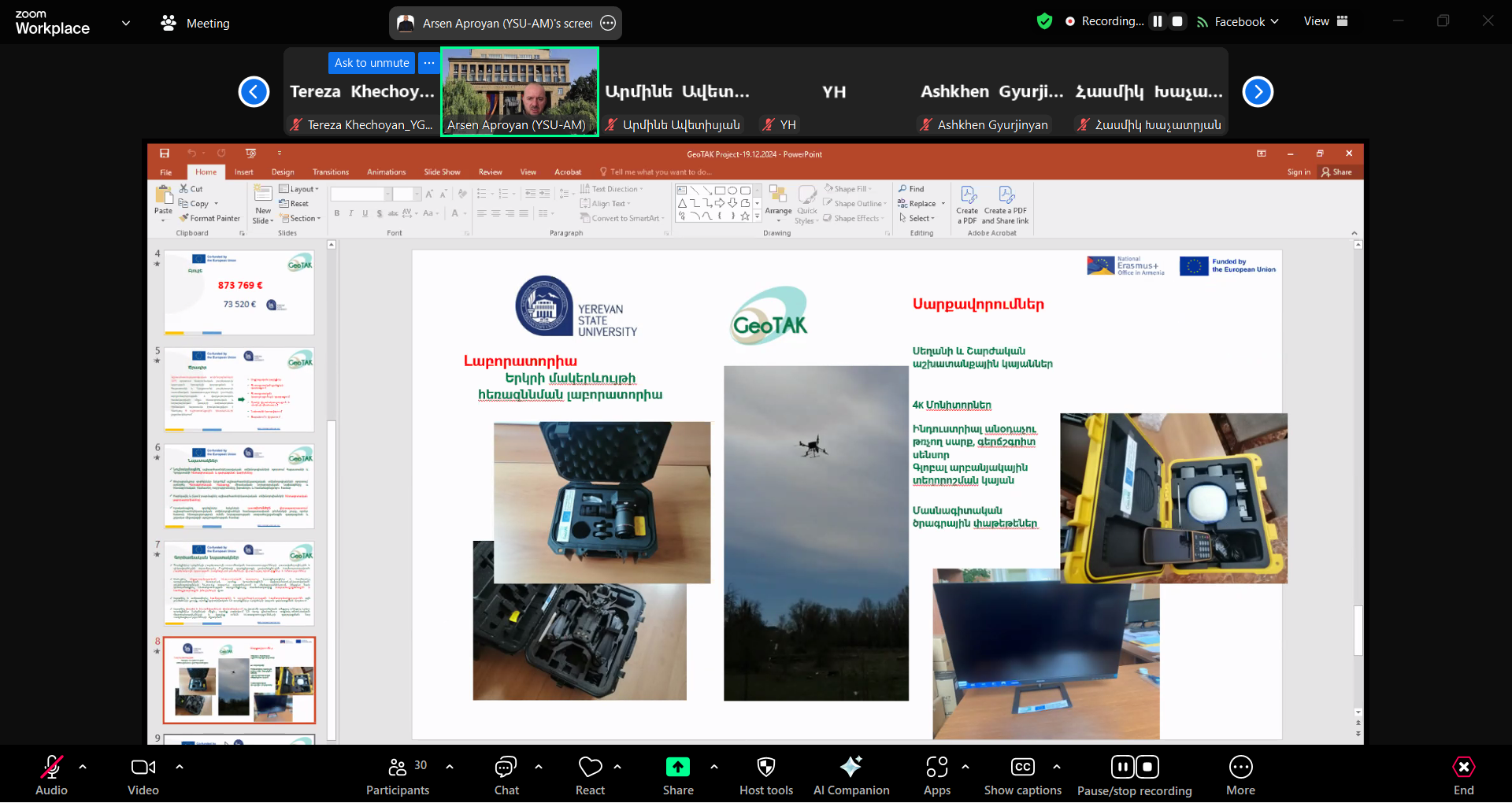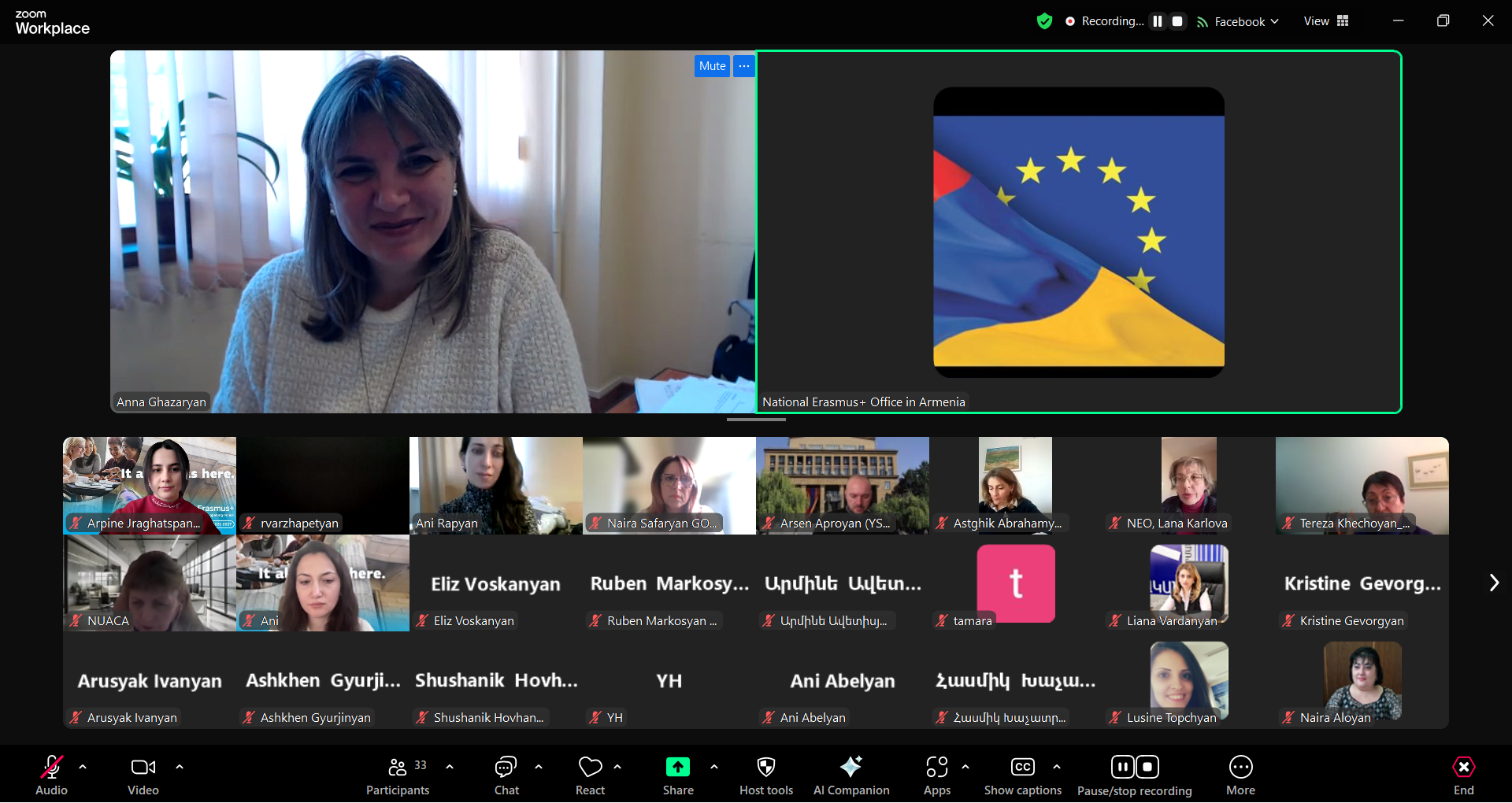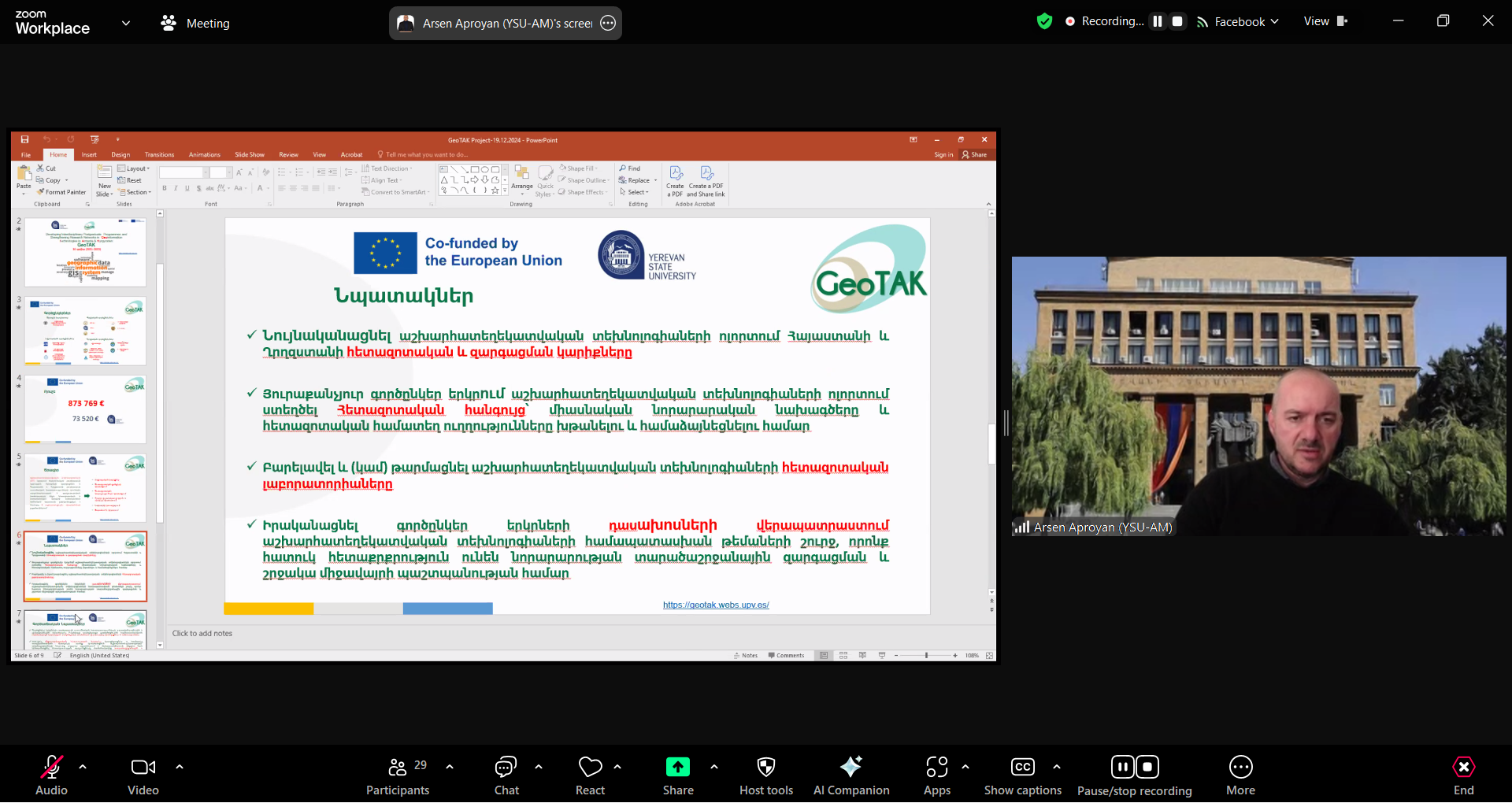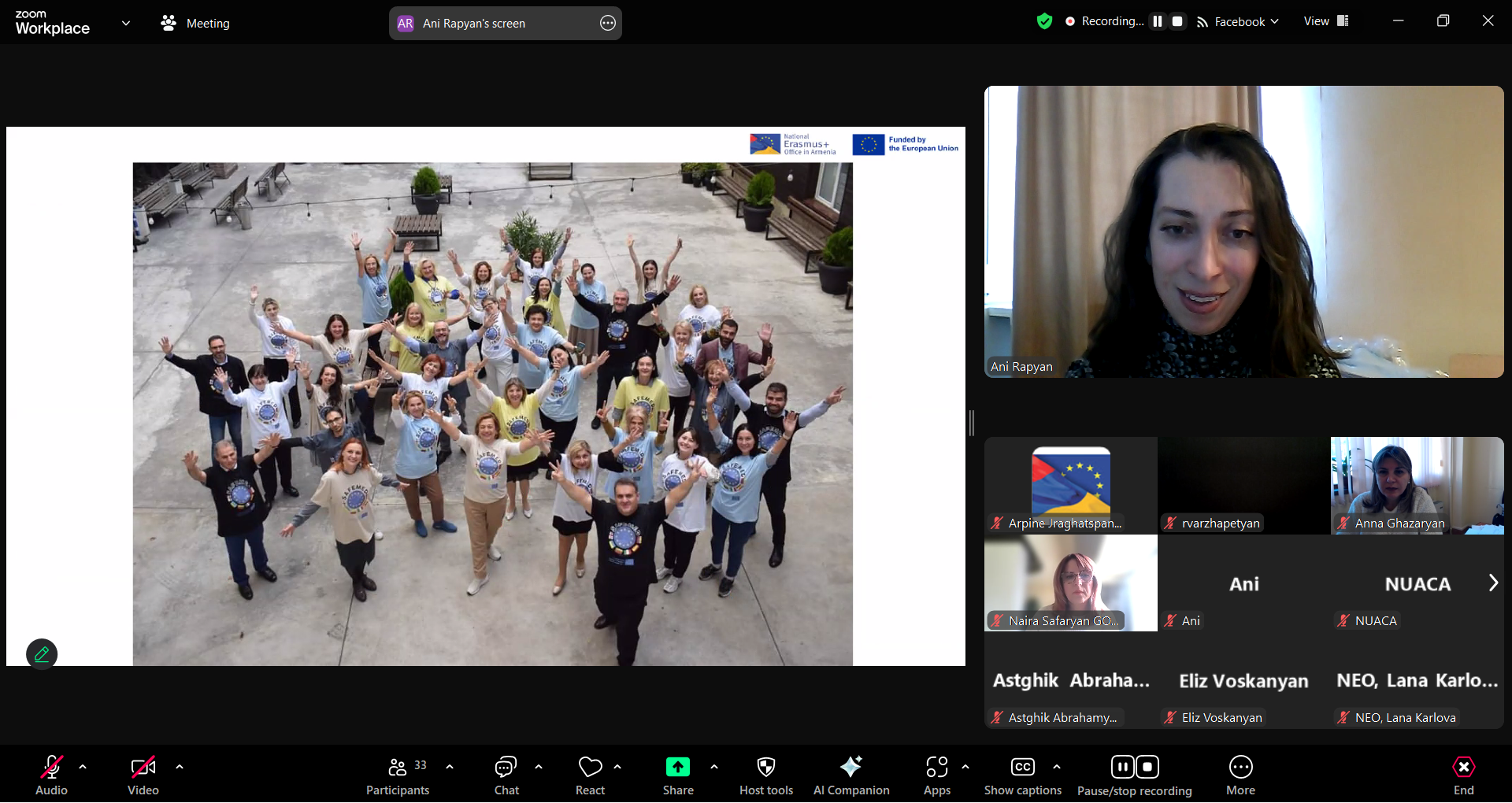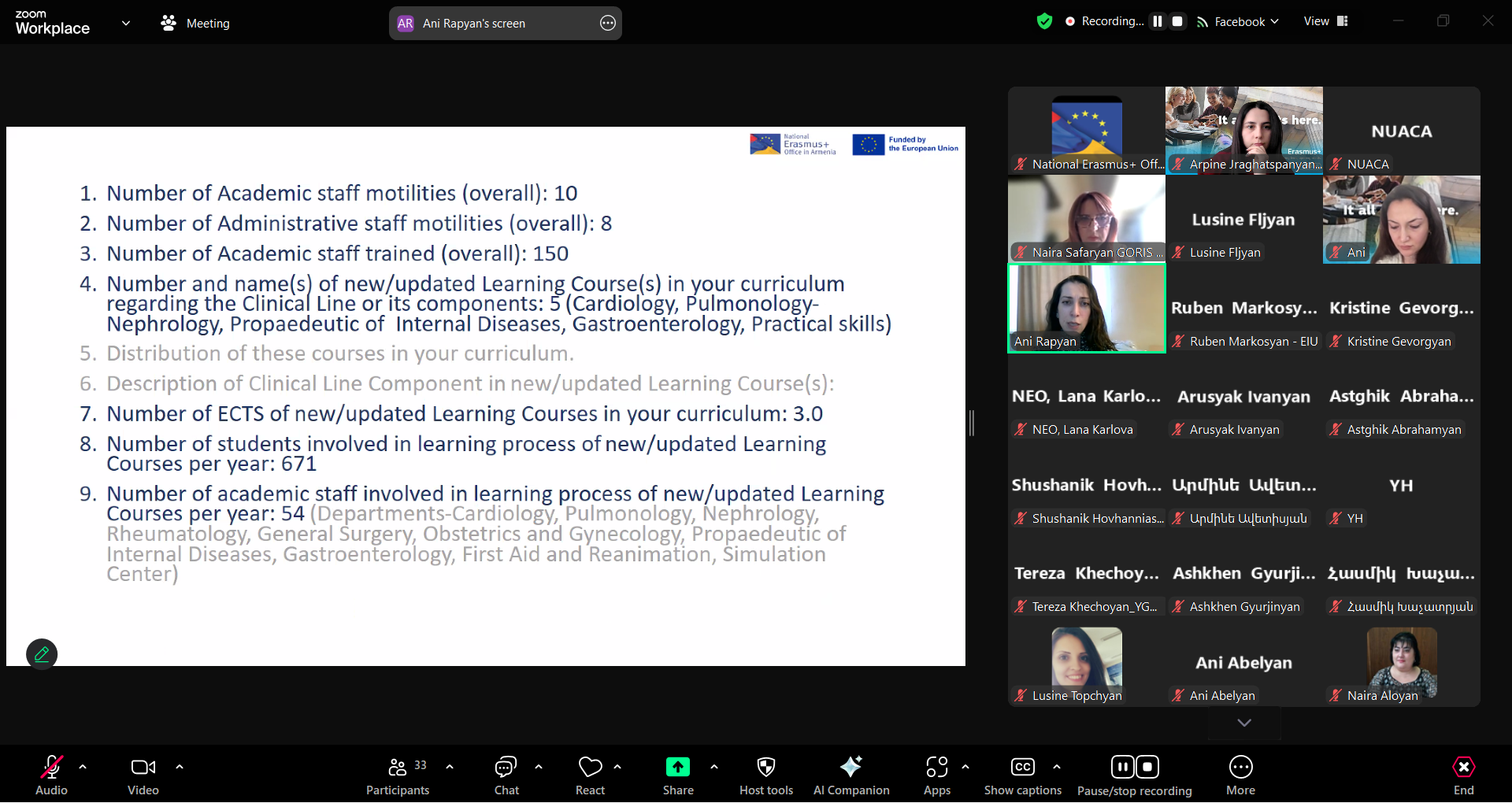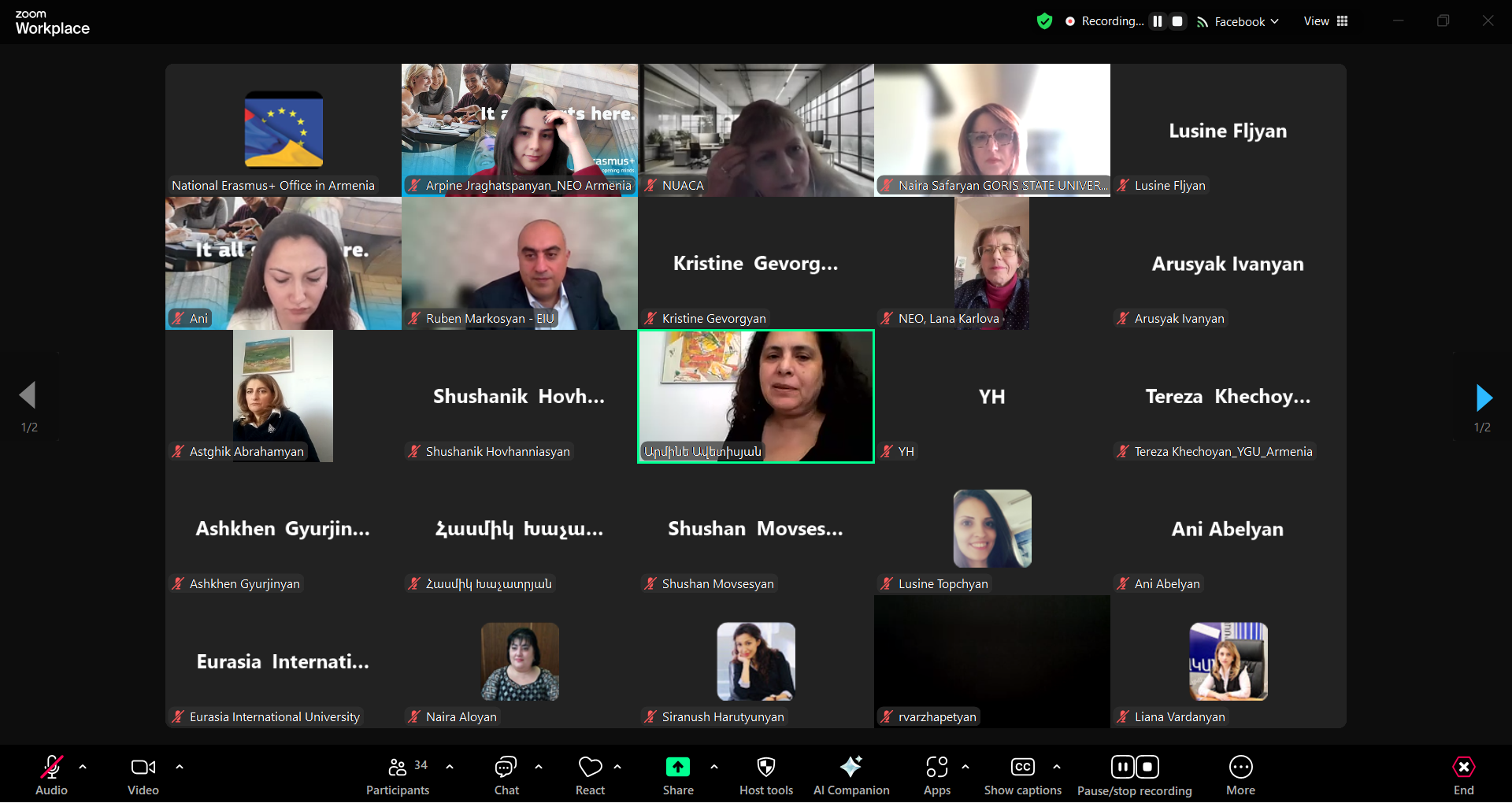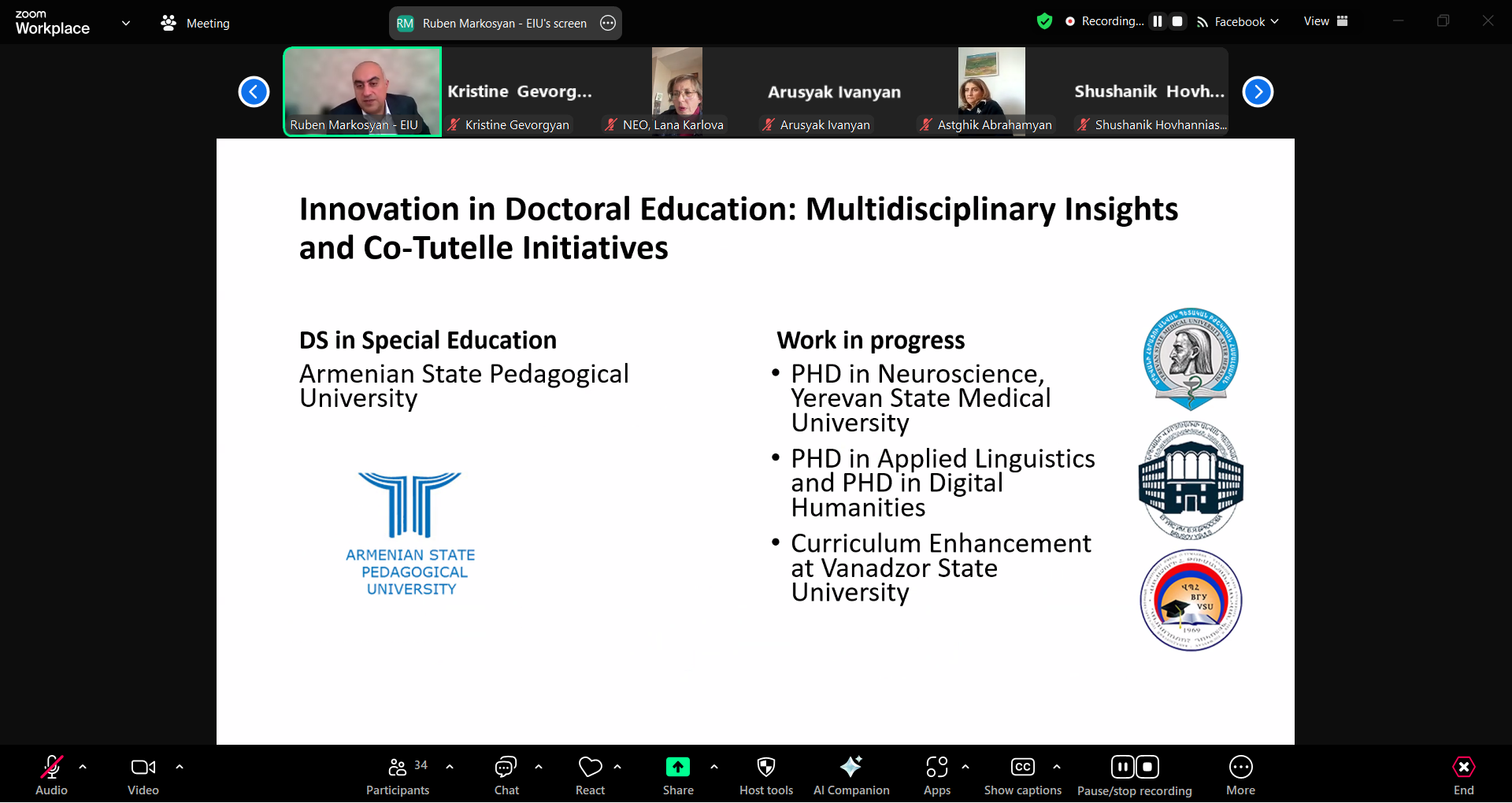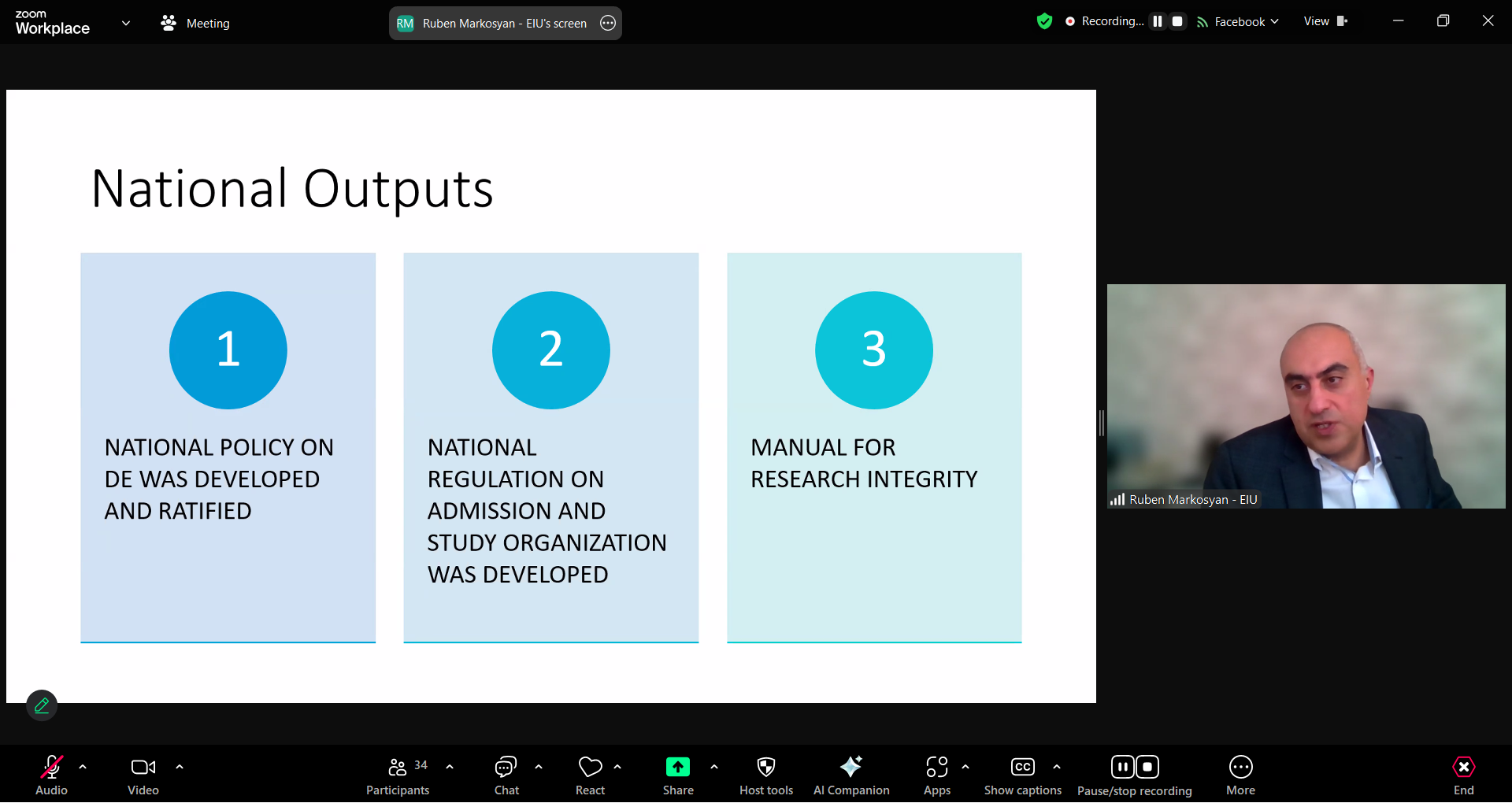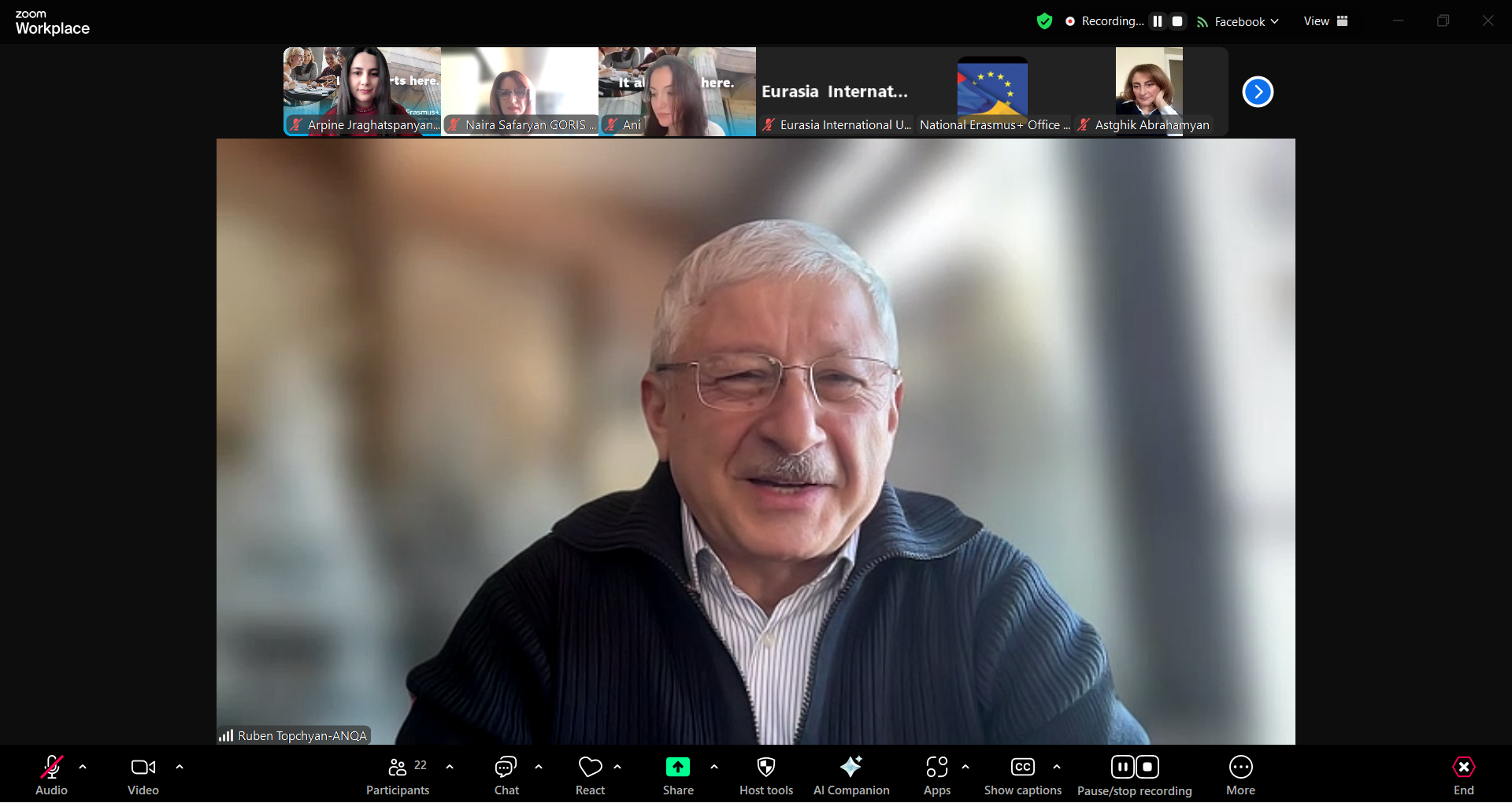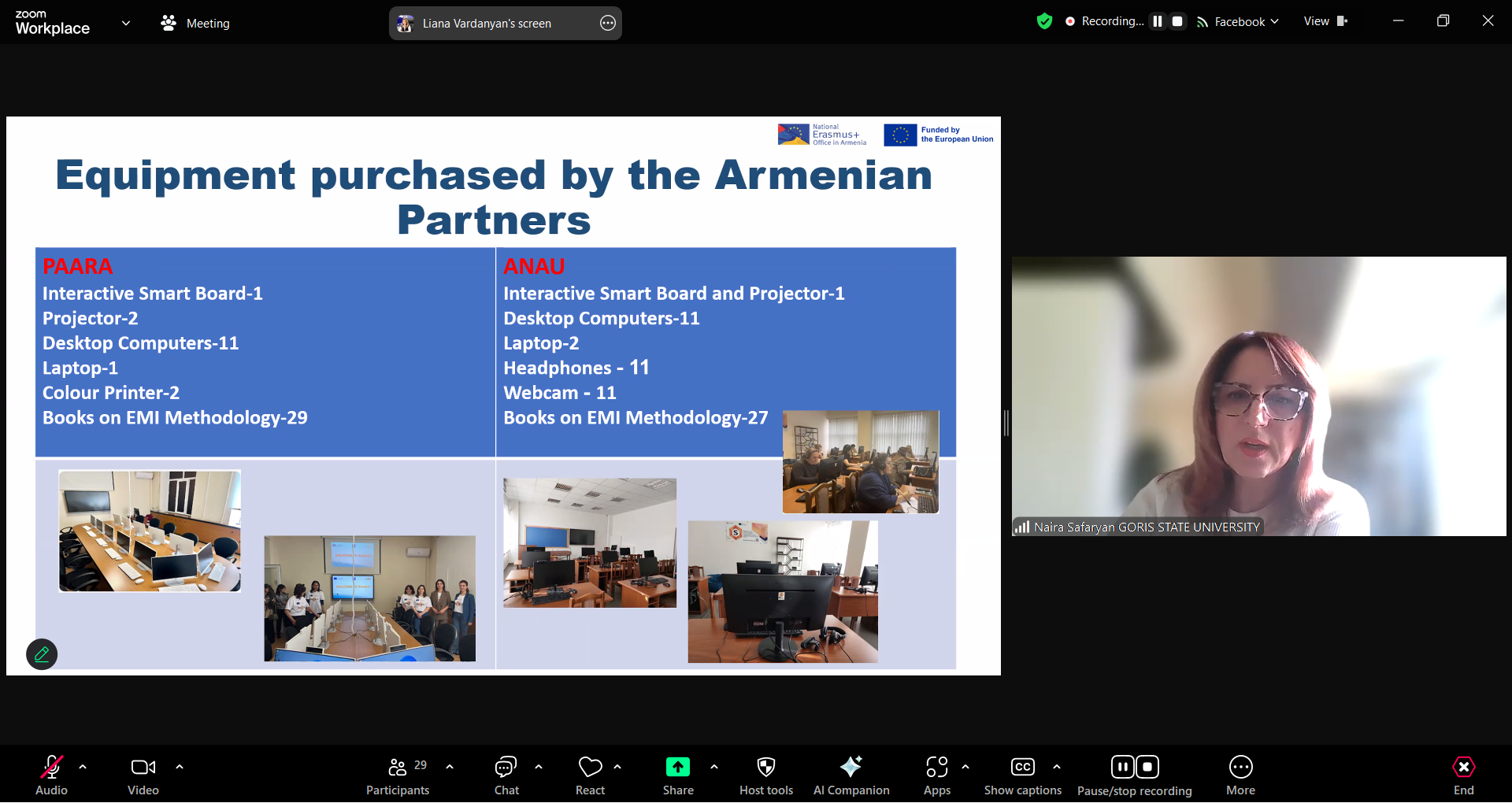The Event ‘‘Exploitation of Erasmus+ CBHE and JMA projects Results’’ was Successfully Held
On December 19, an online event was held dedicated to presenting the results and applications of Erasmus+ projects in higher education. The event aimed to showcase the achievements, impacts, and practical applications of projects implemented under the Erasmus+ “Capacity Building in Higher Education” (CBHE) and Jean Monnet actions, while ensuring the effective dissemination of related information.
The event began with opening remarks delivered by Ruben Topchyan, the Director of the National Center for Professional Education Quality Assurance. Ruben Topchyan, Director of the National Center for Professional Education Quality Assurance, emphasized the importance of the Erasmus+ program in the development of Armenia’s higher education system, highlighting the significance of applying and modernizing best practices in quality assurance. He noted the program’s ability to bring together local and international institutions to collaborate around a shared idea, which eventually transforms into a project. Ruben Topchyan also stated that the impact of the Erasmus+ program on Armenia’s education system is invaluable, as all these investments and exchanges of experience with foreign partner institutions help not only to develop the resource base of the projects but also to strengthen the skills and knowledge of lecturers. “These four projects are just a few from the vast repository that demonstrate the introduction of international standards and their positive impact on our country,” he said.
In the first part of the event, the results of projects implemented under Jean Monnet actions were presented. Christine Gevorgyan, the coordinator of master’s programs at the Center for European Studies at Yerevan State University, highlighted the achievements of the Jean Monnet Module as well as the newly established Jean Monnet Center of Excellence, which was funded this year and is the first of its kind in Armenia. Christine Gevorgyan noted that the appeal of this action lies particularly in the fact that representatives from various fields can participate and implement projects with different focuses. She also emphasized the importance of involving partners in the project who have already accumulated experience in implementing similar initiatives. Within the framework of the Jean Monnet Module, courses on European studies and migration programs have been taught, along with experience-sharing and active collaboration with UNHCR.
The second part featured presentations of projects funded under the “Capacity Building in Higher Education” action, including:
“Reforming Doctoral Education in Armenia in Line with Academic Community, Industry Needs, and EU Practices” (ARMDOCT), presented by Ruben Markosyan (Eurasia International University, Vice-Rector for Educational and Methodological Affairs) and Armine Avetisyan (National Polytechnic University of Armenia, Professor, Department of Information Technologies and Automation).
Ruben Markosyan noted that more than 15 universities were involved in the project, including 8 universities from Armenia and 4 from Europe (Italy, France, Portugal, and Lithuania). Postdoctoral schools, joint consortium-based schools, as well as industrial doctoral schools focused on artificial intelligence and technical learning, among others, were developed.
Referring to the project’s outcomes, Armine Avetisyan emphasized that a very important document was developed as a result of the project, which was approved by the RA Ministry of Education, Science, Culture, and Sports: the “Concept for Reforming the Third Cycle of Higher Education – Doctoral Studies.”
“Simulation for Patient Care Safety and Quality Improvement in Pre-Diploma Medical Education” (SAFEMED+), discussed by Ani Rapyan (M. Heratsi State Medical University, Lecturer, Department of Propaedeutics of Internal Diseases, Assistant, Center for Practical Skills Educational Simulation) and Anna Ghazaryan (M. Heratsi Yerevan State Medical University, Head of International Cooperation Department). Ani Rapyan mentioned that within the framework of the project, four key simulators were acquired, which assist students in performing abdominal organ palpation processes using the simulators. Students also underwent a one-week training at the Simulation Center to acquire clinical skills. The project facilitated academic and administrative mobility (18 participants), the retraining of 150 staff members, and involved 671 students who annually participate in the new training programs, among other achievements. Anna Ghazaryan added that these devices have had a significant impact on organizing clinical examinations at the university according to new standards.
“Development of Interdisciplinary Postgraduate Programs and Strengthening of Research Networks in Geospatial Technologies in Armenia and Kyrgyzstan” (GEOTAK), detailed by Arsen Aproyan (Head of Grants Coordination Department, Yerevan State University). Arsen Aproyan noted that within the framework of the project, a Remote Sensing Laboratory for Earth’s surface was established, and Armenian universities acquired educational tools and valuable equipment for the geoinformation field (industrial drones, research measurement devices, etc.), which are actively used by master’s and doctoral students.
“Support for Innovative Methodology, Approaches, and Tools for Teaching English to Improve Educational Outcomes, Sustainability, and Internationalization” (SMARTI), presented by Liana Vardanyan (RA Academy of Public Administration, Head of the Center for International Cooperation and Development) and Naira Safaryan (Goris State University, Head of the Department of External Relations, Cooperation and Information).
Liana Vardanyan emphasized the highly productive collaboration with the project partners (the project coordinator was Dresden University of Technology, with universities from England, Latvia, and Portugal also involved). Among the project’s key achievements, Liana Vardanyan highlighted the development of 10 practical and applied modules, as well as training sessions aimed at enhancing the teaching skills of lecturers delivering courses in English. These activities were supervised by European partner universities (Portugal and Germany).
Within the framework of the project’s internationalization, a major achievement was the provision of methodological guidelines by experts from Germany’s Ministry of Education, specifically designed to promote student-centered teaching in English.
Naira Safaryan, in turn, outlined the scientific and technical resources acquired through the project, which have been implemented in EMI centers and are actively utilized by students and faculty members alike.
During the event, it was highlighted that since 2016, 44 projects involving Armenian universities have been funded under the CBHE action, significantly contributing to the reform of the country’s higher education system and the development of international cooperation.
This event once again emphasized the importance of the Erasmus+ program in advancing higher education, offering participants an opportunity to learn from successful examples and apply them to the ongoing improvement of the educational system.

